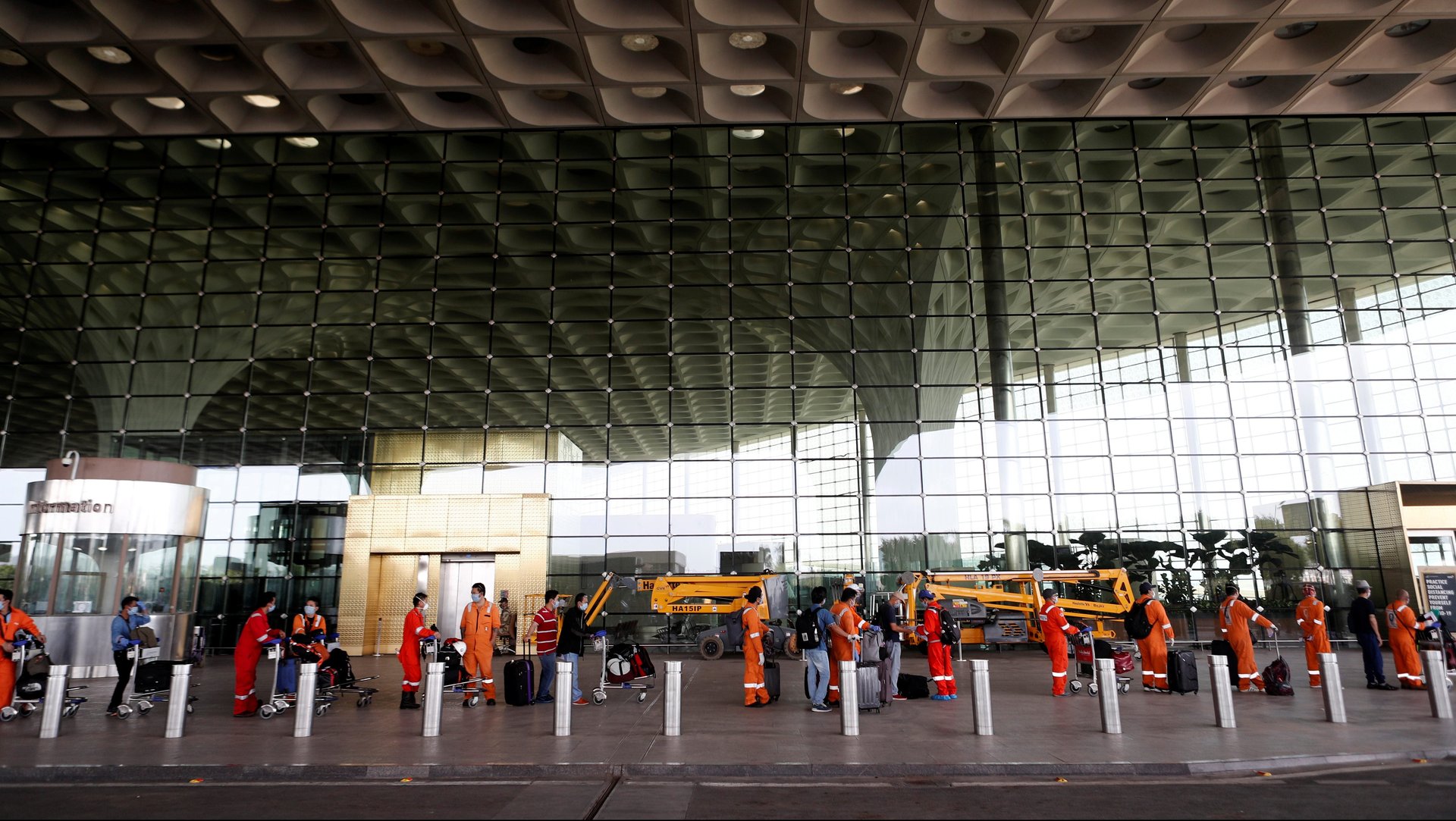How Mumbai airport is preparing to transport the Covid-19 vaccine
On Dec. 2, the UK became the first country to authorise a Covid-19 vaccine for use. The Pfizer-BioNTech vaccine will be available in the country from next week. Now, India has said it is considering a tie-up with Pfizer. While India explores options to source the vaccine, its next big challenge would be to devise a distribution plan that covers the entire country.


On Dec. 2, the UK became the first country to authorise a Covid-19 vaccine for use. The Pfizer-BioNTech vaccine will be available in the country from next week. Now, India has said it is considering a tie-up with Pfizer. While India explores options to source the vaccine, its next big challenge would be to devise a distribution plan that covers the entire country.
The international airport in the country’s financial capital Mumbai is already taking the lead in this direction.
The vaccine which needs to be transported at cold temperatures loses potency when exposed to higher temperatures. For instance, the vaccine made by Pfizer needs to be kept at -70 degrees celsius, which is colder than winter in Antarctica. So, given the large number of dosages India will need, it needs robust and efficient cold chain facilities.
Mumbai’s Chhatrapati Shivaji Maharaj International Airport (CSMIA) has started preparing itself for the safe transportation of the Covid-19 vaccine. The airport is expected to play a pivotal role in storing and distributing the vaccine in India as it is home to Asia’s largest Pharma-dedicated import cold zone, which has a cold storage capacity of 30,000 tonnes.
The airport also has Asia’s largest temperature-controlled Export Pharma Excellence Centre with an annual handling capacity of 350,000 tons, spread over an area of 4,000 square meters.
“CSMIA also offers a first-of-its-kind, indigenously developed ‘Cooltainer’ facility that facilitates +2 to +8 degree temperature-controlled transport between the cold storage terminal and the aircraft,” the airport’s spokesperson said.
But the airport’s management realises that they need a plan to make the best of their infrastructure. And that’s just what they are doing.
The Covid-19 vaccine task force
CSMIA plans to create a dedicated task force to facilitate vaccine transportation. This team will undertake advance planning and collaborate with all stakeholders such as other airports, airline customers, supply chain partners, regulatory and governmental bodies, and vaccine distributors.
Such advance planning could go a long way in making the transportation process seamless.
“The task force will extend all efforts to optimise temperature management, reduce dwell time with prior special approvals from regulators, and lower processing time in order to ensure an unbroken cold chain for the vaccine movement from the manufacturing facility to the end distributor,” a spokesperson of CSMIA told Quartz.
Besides personnel capabilities, the airport is also planning to dedicate its infrastructure capabilities towards vaccine distribution.
Infrastructure for Covid-19 vaccine
The Mumbai airport is prepared to provide flexible slot management for ad-hoc charter operations so that planes carrying vaccines can take off on priority.
Additionally, CSMIA is also preparing to provide dedicated truck docks and x-ray machines for vaccine distribution. It will also provide a dedicated unit load device buildup workstation, which is used to load freight on aircraft, to its vaccine distribution system.
Key managers will be appointed by the airport to continuously monitor the vaccine operations at its facilities.
The Mumbai airport will also set up 24-hour customer service to provide real-time updates for Covid-19 vaccine export and import consignments.